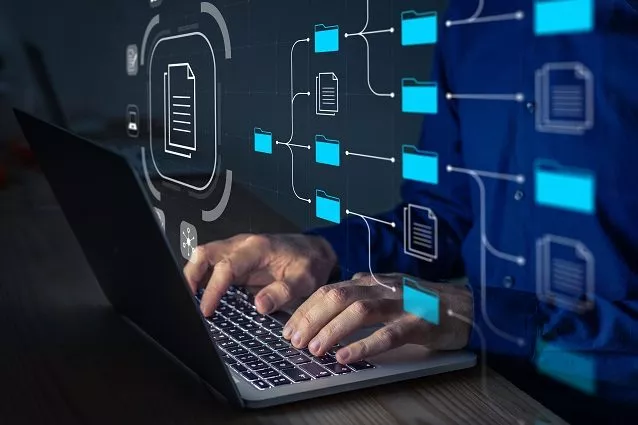

15 May 2020
Digital Dependency – Why companies now rely on IT solutions from Europe
Not only since half of Germany has been working in the home office and people are relying on Zoom, Teams and Skype for video conferencing, we have become aware of one thing: Our IT infrastructure, like world trade, has long since become globalized. This brings with it opportunities – and risks. And is now set to change.
China and the U.S. dominate the market
Servers, digital devices, operating systems, microchips: When it comes to the digital equipment of offices and infrastructure, German companies inevitably have to rely on manufacturers and suppliers from overseas, especially from the United States and China. There is not a single European company among the five largest computer manufacturers in the world. Servers are manufactured exclusively overseas. This does not affect the quality. But during the discussion about IT security, not quite two years ago, one thing became clear: data leakage, monitoring and industrial espionage are very real threats.
Despite the new awareness, the dependence has remained. In our day-to-day business, that doesn’t matter. But in times of crisis, which are accompanied by supply bottlenecks and in which the different handling of data protection regulations is perceived as a security risk, we have come to realize: without European solutions of its own, total dependence can become a threat to the business model. Even if a software is highly up-to-date and is therefore frequently used, we are still at the mercy of its weak points. Recent incidents with zoom conferences have shown that software with security holes can in some cases be the gateway for the spread of malware or leave a backdoor for unwanted visitors who then may insult other conference members.
Umdenken: digitale Selbstbestimmung
According to a recent survey among 500 IT experts conducted by Civey, the dependency in the field of office software, end devices and network and cloud technology is too big. They want more data centers in Germany (24%), more European IT providers (23%) or open standards for data exchange (52%).
But how can this be achieved if the providers are not there? Or are they, but their solutions are not attractive enough? Is it due to their low profile? Maybe – but sometimes you don’t even have to search very long. TeamViewer AG, one of the world’s leading software providers of remote connectivity solutions, is currently experiencing a boost on the stock market. The share price has increased by more than a third. This is also due to the increased demand for the remote control software, which allows you to access your office computer from home.
A German alternative to Zoom, Skype or Teams has also long been available with meetyoo. The leading provider of digital events and virtual conferences in Europe meets the high data protection standards of the EU.
And what about the Cloud? The major European digital project Gaia-X will help strengthen the industry in international competition. The aim is to build a European cloud through many small, geographically distributed edge data centers with open cloud connections. It should enable secure digitisation and networking of the industry and serve as a basis for the use of new AI (artificial intelligence) applications. Will a networked data infrastructure lead to a new vital European ecosystem?
Political support
Today, the framework conditions for digital independence and autonomy are better than ever. At the end of last year, the new European Commission announced its intention to make Europe a pioneer in the digital field. New policies and frameworks will enable Europe to introduce state-of-the-art digital technology and strengthen its cyber-security capacities.
When, if not now, is the best opportunity to do so?
You might also like
Do you have any further questions?



